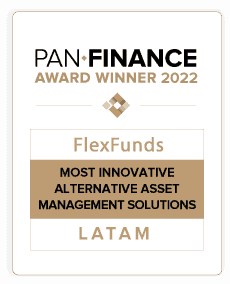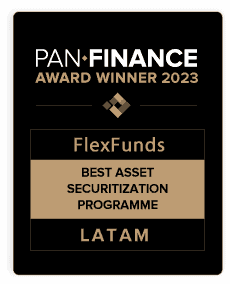- This article details the key factors asset managers should analyze to select the most suitable investment vehicle aligned with their clients’ profiles.
- The information is intended for asset managers and investment advisors seeking to understand the different types of investment vehicles and their characteristics.
- At FlexFunds, we design and launch cost-efficient investment vehicles that can enhance the distribution of strategies on international private banking platforms. For more information, don’t hesitate to contact our team of experts.
Achieving financial goals through investment is a complex task that requires considering multiple variables and having a deep understanding of financial markets. However, this process can be simplified and made more efficient by using investment vehicles, provided they are chosen appropriately.
How to choose the right investment vehicle
Asset managers and advisors must thoroughly analyze several key aspects to select the most suitable investment vehicle for their capital or that of their clients:
Assessing needs and objectives
There is a wide variety of investment vehicles designed to meet different goals and needs. For this reason, finding the right one requires a rigorous evaluation of the personal situation of each investor or group of investors.
For instance, if an investor has limited capital, a very long-term horizon, and a high-risk tolerance, recommending an investment vehicle composed solely of low-volatility bonds instead of growth stocks may not be the best decision.
Conversely, if the client has substantial capital and seeks to protect against inflation with minimal risk, allocating entirely to an equity vehicle would be dangerous and highly inadvisable.
“Investing must start with a specific goal corresponding to a set time horizon. The goal itself could be anything: buying a new car in two years; purchasing your first home in five years; or retiring in 40 years. What’s most important is to have the goal be the focus of your approach,” explained Morgan Stanley.
Understanding the different types of investment vehicles
After assessing needs and objectives, the next step is understanding the different types of investment vehicles, which can be divided into two major groups:
Public investment vehicles
In these cases, the assets within the vehicles are publicly traded on stock exchanges, often offering greater liquidity. Examples abound stocks, bonds, exchange-traded funds (ETFs), mutual funds, real estate investment trusts (REITs), among others.
Private investment vehicles
On the other hand, private assets are not publicly traded, making them less liquid and requiring specific accreditation. Notable examples include private equity funds, non-traded real estate trusts, and hedge funds.
Analyzing composition and risks
Once familiar with the different types of investment vehicles, asset managers or advisors must analyze their composition to determine risks and potential benefits.
While it is almost impossible to predict future performance of an investment with 100% certainty, it is possible to estimate it with reasonable accuracy by understanding the two main risk categories:
Systematic risk
This refers to market risk or non-diversifiable risk, encompassing economic, social, financial, monetary, and political factors that broadly affect asset returns regardless of specific circumstances. For instance, even if a company is profitable with promising prospects, its stock price could collapse due to a global war or pandemic.
Non-systematic risk
In contrast, non-systematic risk is asset-specific and diversifiable. For example, if there’s no war or pandemic and the market is experiencing a strong upward trend, a company’s stock could still plummet due to declining earnings or management fraud.
Every asset, and by extension every type of investment vehicle, carries these two risk types. Diversification is the only way to eliminate one (non-systematic risk) while leaving the unavoidable (systematic risk).
“A well-diversified portfolio thus consists of groups of assets which are lowly or negatively correlated with each other. An investor holding a portfolio of 30 different technology stocks is not diversified at all. But an investor with a 30-stock portfolio covering a range of industries, bonds and real estate, has a decent level of diversification,” explained Standard Chartered.
The Importance of solid support
Regardless of the investment vehicles chosen for portfolio management, it’s essential to remember that their liquidity and distribution can be enhanced through an asset securitization process that turns them into exchange-traded products (ETPs), such as the one offered by FlexFunds.
FlexFunds’ ETPs are listed securities with their own ISIN/CUSIP codes, with underlying assets that can be liquid, such as stocks or bonds, or illiquid, such as real estate, hedge funds, and private equity funds.
FlexFunds collaborates with globally renowned service providers, including Interactive Brokers, Bank of New York, CSC, and Bloomberg, among others.
With FlexFunds ETPs, multiple asset classes can be repackaged into one investment vehicle, allowing the financial manager or advisor to more quickly and cost-efficiently distribute their strategies to reach a more extensive client base.
For more information about FlexFunds’ ETPs and their asset securitization process, contact our team of specialists. We’ll be happy to assist you!







